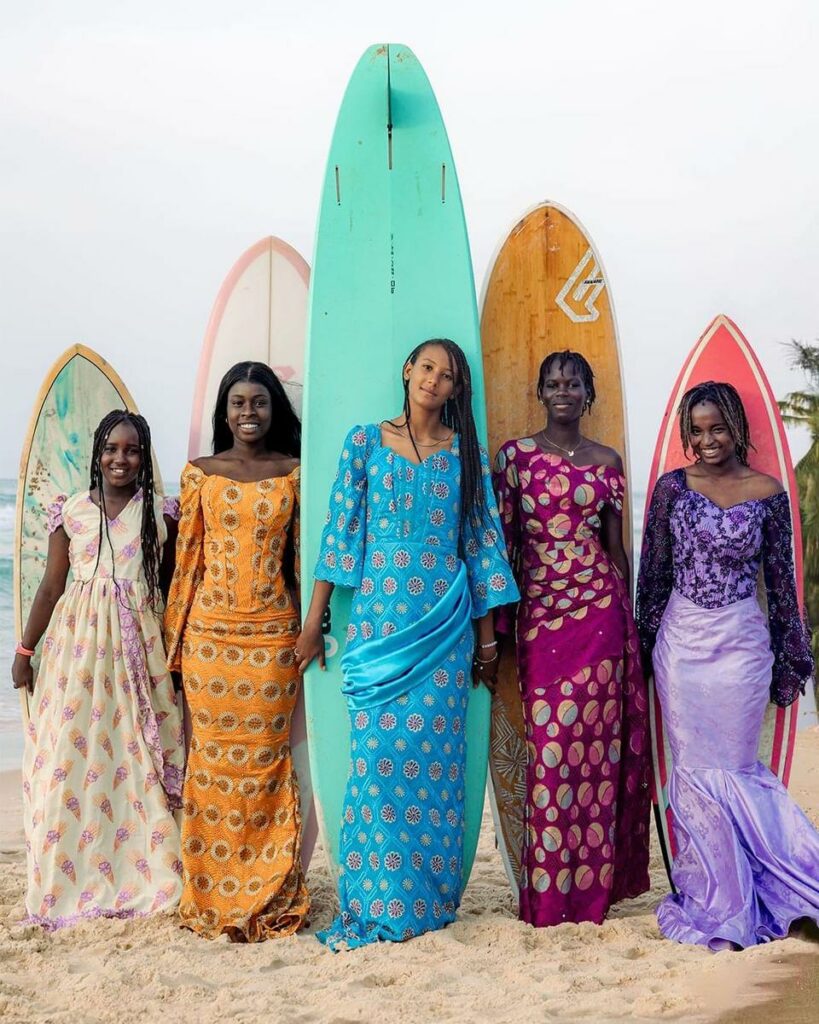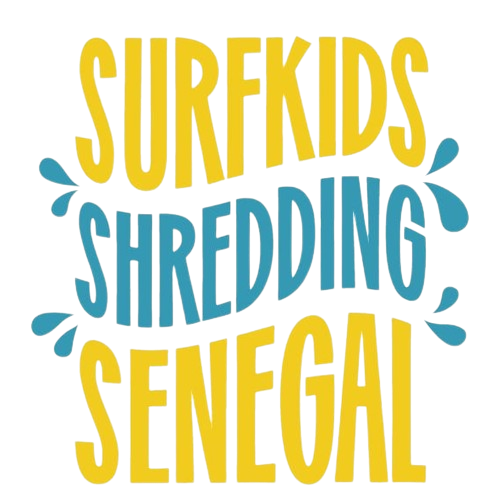Girls are up!
Every girl must have the same access to surfing as boys. Gender equality is a main focus of our program!
Surfing in Senegal is practiced by more than the 90% by boys, who got closer to this sport by going to fishing, which is strictly a male activity.
Our goal is to have 50% of the beneficiaries of our program be girls by 2026, aligning with the Dakar Youth Olympic Games.
To achieve this, we are implementing targeted initiatives such as all-girls training sessions, discussion panels, and professional development programs. We empower girls to take on responsibilities within the program, allowing them to become leaders and role models for the younger generations.
The core group of girls benefiting from the program is actively breaking gender stereotypes and serving as role models in their community. They successfully balance surfing with their studies or jobs. While they still manage their responsibilities at home, the support from tutoring enables them to organize their time effectively and plan their tasks.
Surfing serves as a powerful tool for girls to build self-confidence and to become part of a supportive community of peers.


The ocean is often seen as dangerous, and surfing remains a privilege for those brave enough to ride the waves, paddle against strong currents, and risk falling onto rocks. When a girl demonstrates such courage, she earns great respect within the surfing community.
When a girl demonstrates such courage, she earns great respect within the surfing community. Girls gain self-confidence and feel a sense of belonging to a community where they can teach younger members and learn from their mentors. They realize that surfing opens up opportunities for them to seize.
Given the predominantly Muslim society, which prohibits the exposure of certain parts of the female body, we are working to find wetsuits or beach attire that accommodate diverse body types and cultural norms, as it is essential for girls to avoid facing prejudice.
Additionally, we organize panels to foster discussions with athletes who have encountered biases in their own sports, as well as workshops aimed at reshaping the image of Black surfers on social media.
